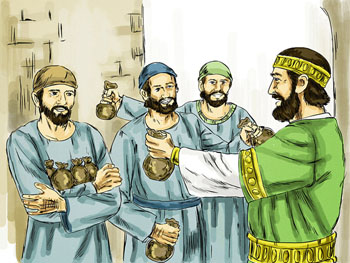Euthanasia is the intentional killing of a human in order to relieve their suffering. When life-sustaining treatments are withheld from a patient with a terminal condition, it’s called “passive” or non-voluntary euthanasia. When a suffering patient asks for their life to be terminated, it’s voluntary. The moral, ethical, and legal issues surrounding the practice are divisive around the globe. On one side, those that uphold the sanctity of human life; on the other, those that argue for self-determination and personal choice.
On November 1, the District of Columbia City Council voted 11-2 to pass the “Death with Dignity Act” that allows a physician to legally prescribe drugs to mentally competent people who have a terminal diagnosis of 6 months or less. You can read the article here.
Ironically, shouldn’t this decision spark a whole new discussion from the Blacks Lives Matter groups? This is, after all, Washington D.C., our nation’s capital with a 50.7% black or African-American population! Why is legalizing murder/suicide not opening another can of worms—could the District also use a suicide option to remove the suffering of the most marginal citizens?
 For example, take a hopelessly down-on-his-luck drug-dependent homeless man on the street who walks into a doctor’s office to demand assisted suicide. He has no future, no hope, and no means to overcome his dependence on a drug that will eventually kill him anyway. He complains that he is suffering, probably more so than anyone dying from cancer or another fatal disease. His lifestyle is his fatal disease. He demands to be put out of his misery and appears to be mentally competent in his demand.
For example, take a hopelessly down-on-his-luck drug-dependent homeless man on the street who walks into a doctor’s office to demand assisted suicide. He has no future, no hope, and no means to overcome his dependence on a drug that will eventually kill him anyway. He complains that he is suffering, probably more so than anyone dying from cancer or another fatal disease. His lifestyle is his fatal disease. He demands to be put out of his misery and appears to be mentally competent in his demand.
The terms of the euthanasia law that just passed is fairly narrow now, but many social justice laws were narrow at their first passing (like abortion) and became more lenient over time as society grew used to new norms. By passing this law on assisted suicide, are they not emphatically declaring that some lives do not matter?
 While stewardship is an ethic that embodies the responsible planning and management of resources, the concepts of stewardship can be applied to the environment and nature, economics, health, property, information, theology, etc. At the Stewardship Foundation, we extend this to the protection of human life, religious freedom, and the sanctify of marriage.
While stewardship is an ethic that embodies the responsible planning and management of resources, the concepts of stewardship can be applied to the environment and nature, economics, health, property, information, theology, etc. At the Stewardship Foundation, we extend this to the protection of human life, religious freedom, and the sanctify of marriage.